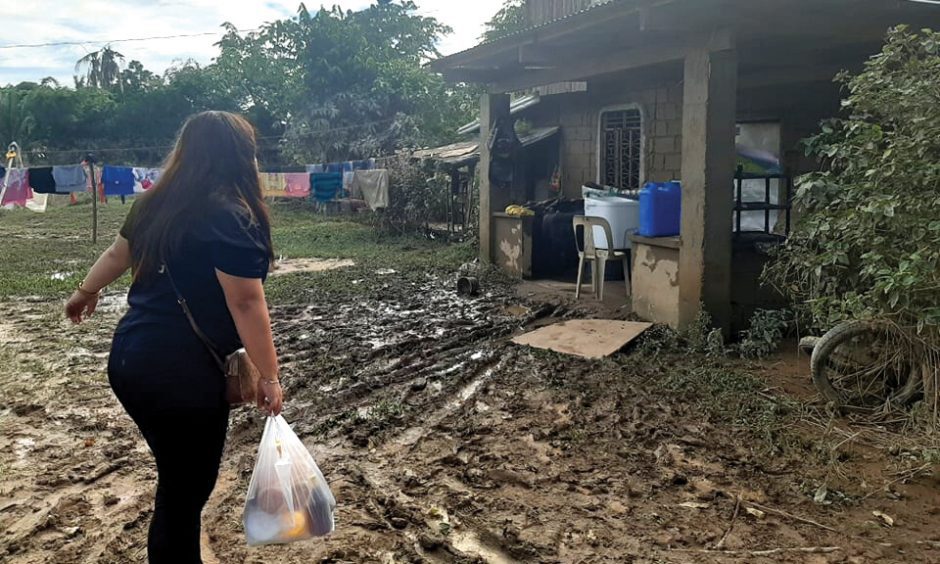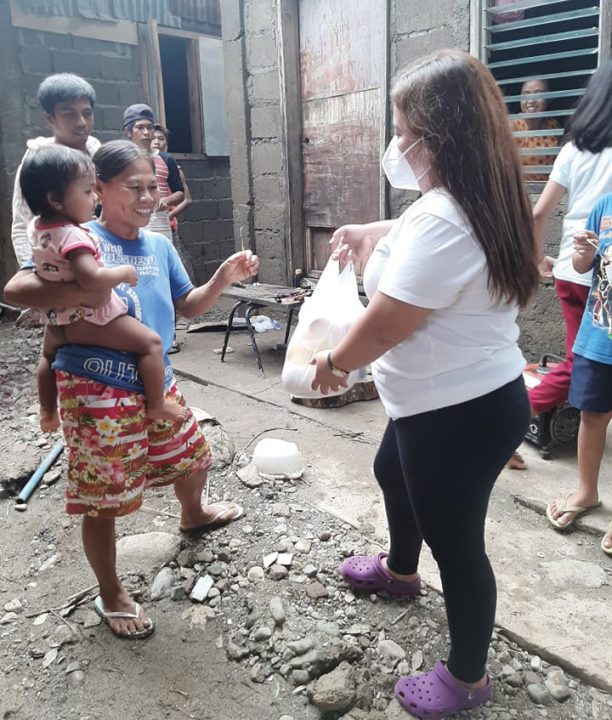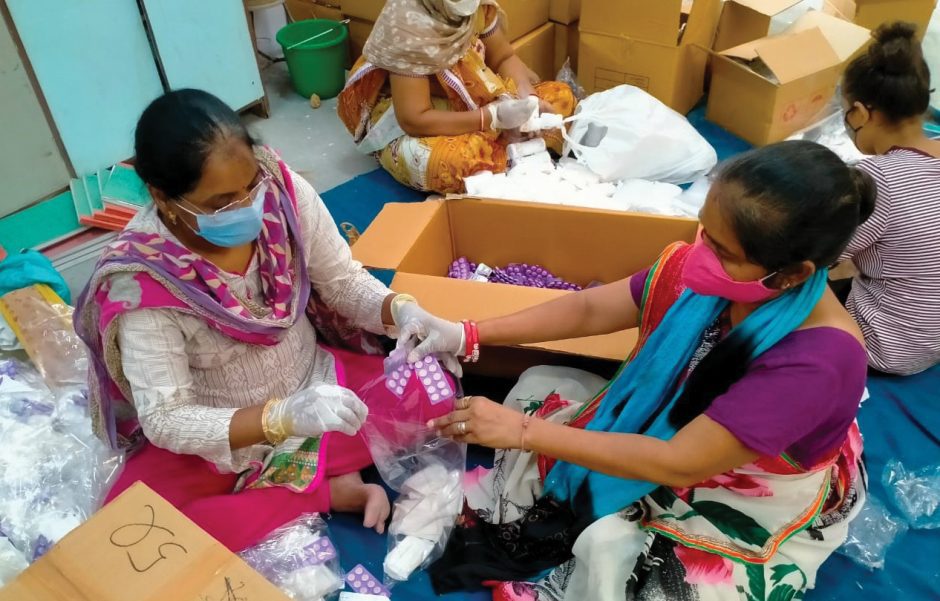“The trees that grow in stormy climates strike the greatest roots,” writes a contributor under the alias of ‘Hopeful’ in an 1863 issue of The Co-operator. The writer was reflecting on the role of the co-op movement during the Lancashire Cotton Famine.
Between 1861 and 1865, members of the Rochdale Pioneers’ co-operative withdrew £83,000 to cover living costs in times of unemployment. Local co-ops also set up relief committees to support workers and their families with hardship funds and soup kitchens.
Over the years there have been countless examples of co-ops stepping up for their communities in a crisis – through fire and famine and world wars. Retired co-operative librarian Gillian Lonergan says: “For me, it all springs from where co-operatives came from … they are set up for the needs of the members, whatever those needs might be. So right from the early days, looking after the community, whether it’s a big or tiny little community, co-ops have been placed to respond to needs.”
The Philippines is home to a strong co-op movement: it has over 18,000 co-ops with a combined membership of 11.5 million members. In a country that experiences around 25 typhoons a year, this network often plays a role in responding and building resilience.
Last year, CLIMBS Life and General Insurance Cooperative launched its enhanced Weather Protect Insurance product, which uses blockchain and smart agriculture to offer farmers protection against extreme weather. Working with a number of international and national partner co-ops, they were able process members’ claims within 10 days when Typhoon Rai (aka Odette) hit the Philippines before Christmas.

Donna Dizon, vice president, administration and corporate planning at CLIMBS, describes the launch of this product as a “breakthrough”, explaining that “our goal is really to help build resilient co-operatives and communities”.
CLIMBS also provides immediate relief and support to communities affected by disasters through its CLIMBS Community Action Response to Emergency Services (CARES) programme.
“What we call the mutual difference, is that the owners are the members, so we know them,” says Ms Dizon. “We have bases in the communities, so it’s really at grassroots level.”
Related: Filipino co-ops step in to support those affected by Typhoon Rai
Co-ops operate in the first instance at a “barangay”, or town hall, level when disaster strikes, she adds. During this process, communication will be made with the co-ops’ member owners and partner organisations via a range of platforms, including digital.
Sometimes face-to-face communication is the only way to reach members during an emergency, adds Rowena Abella, marketing vice president at CLIMBS. “The areas affected by Odette could not be communicated with because the lines were cut, so our president went there, to Bohol, to physically give the goods.”

Another priority for CLIMBS is inviting more young people into the co-op, in part through a range of educational programmes. “Educating our younger generation on co-operativism is really important because although the co-op model is already over 100 years old, it remains a very relevant model,” says Ms Dizon.
CLIMBS will soon launch the mobile KoopSkwela Learning Hub, offering basic reading, writing and maths lessons to young Filipino people – a vital provision now that the pandemic has disrupted schooling.
International communication is also a key consideration. “CLIMBS is a local product, but we have gone global,” says Ms Dizon. The co-op has presented its Weather Protect Insurance project as its contribution towards #Coops2030, aiming to address a number of the UN Sustainable Development Goals, including climate action, no hunger and zero poverty.
Meanwhile in the UK, an international working group (IWG) has been established to support the planning, coordination and delivery of the UK co-op movement’s international activity. Sarah Alldred, who sits on the IWG, explains that while the UK has a track record of being very generous in crisis, the IWG hopes to provide a space to tell the stories of this work and show members where their support goes.
A recent example is a partnership between the IWG and the Self Employed Women’s Association (SEWA), in response to the Covid-19 pandemic in India. Over £100,000 was raised by UK co-ops, with £70,000 going to immediate relief such as medical kits and food. The rest is supporting the development of two new women’s co-ops – a research co-op and a media co-op.

Mirai Chatterjee, director of the social security unit at SEWA, said Covid had been the worst crisis to hit India since partition, but added: “The solidarity and the support that we got from the UK co-operative movement has been very touching … it has been a true manifestation of the co-operative spirit, of the spirit of partnership.”
Dr Alldred agrees. “I always go back to the values and principles,” she says. “It’s a ‘trade not aid’ approach, it’s working in solidarity with co-ops around the world. It’s not, ‘we’re telling you what to do’, because we’ve got so much to learn from them as well.”
Related: Co-operatives intensify efforts to tackle Covid-19 in India and Nepal
But it’s not so clear as to whether the wider public sees this difference – at least in the UK. “Co-ops have never been good at shouting about what they do,” says Ms Lonergan. “At the time when it was so heavily embedded in communities, right to the 1920s, 1930s, they tended to just sort of take it for granted that this relationship would continue.”
But she believes public understanding of co-ops is increasing, and that it is stories of co-operative action that will push this along. “The stories are so good, the co-operative movement should be getting better publicity than it is for what it’s doing,” she says. “And the more those stories come out, the more people will understand that co-ops can be useful if you’re having a hard time. At the moment you might not think of going to a co-op because you’re having a hard time, but would you think of going to a co-op when you’re having a good time? It’s the same sort of thing.”
When it comes to telling these stories, the UK movement could turn to these different contexts around the world and throughout its history for inspiration. Between 1861 and 1865, as the Cotton Famine raged through Lancashire, membership of the Rochdale Society of Equitable Pioneers grew from 3900 to 5300.
Related: How the Cotton Famine informs the co-op movement’s idealism
In his History of the Rochdale Pioneers, George Jacob Holyoake remarks on how co-operation fared during those difficult times and what conclusions may be drawn: “Co-operation proved to be no hothouse plant, requiring hot-air apparatus and infinite watching, forcing, and coddling; but a hale, hearty, winter shrub, which will take root in any good soil, enjoys a blast, and grows strong by exposure.”